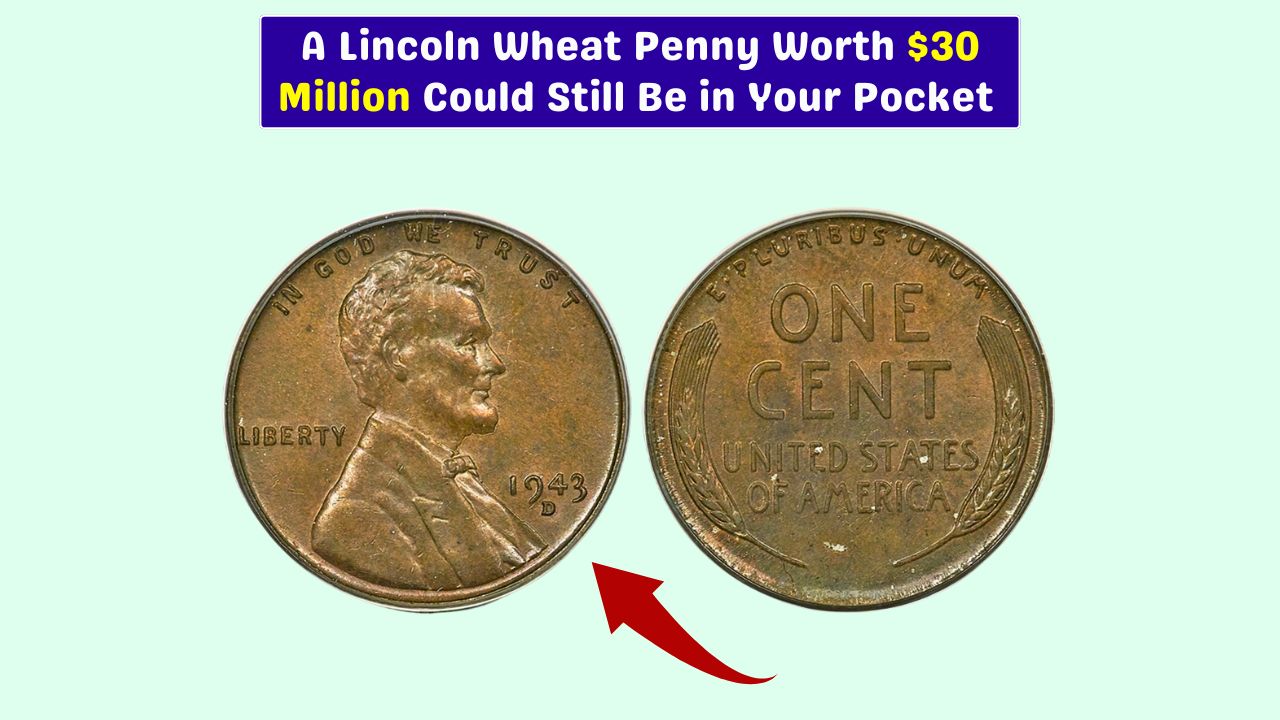What if the next penny you pull from your pocket could buy you a private island — or a luxury villa overlooking the coast? Sounds like fantasy, right? But rumor has it there’s a Lincoln Wheat Penny out there worth up to 30 million dollars.
And here’s the kicker — it might still be floating through everyday change. Let’s look into the story behind this small copper coin that’s got collectors dreaming big.
Origins
The Lincoln Wheat Penny — also known as the Wheat Cent — was minted from 1909 to 1958. You’ve probably seen one: Lincoln’s face on the front, a pair of wheat stalks on the back. They were produced by the millions, and it’s not unusual to stumble across one in an old jar, piggy bank, or even a flea market bin.
But hidden among these humble coins are a few ultra-rare ones. Most are just worth pennies, but the rarest? They’ve sold for thousands — and some are now rumored to be worth tens of millions.
The Mystery
Why would a single penny be worth 30 million dollars? The answer: it’s likely a freak accident — a rare mint error or a long-lost prototype. In the world of coin collecting, mistakes like that are pure gold.
During WWII, the U.S. Mint switched to steel in 1943 to preserve copper for the war. But a handful of 1943 pennies were accidentally struck in copper — and those have fetched as much as 1.7 million dollars. Now imagine a version even rarer — made from a unique metal or created during a secret test batch — that somehow slipped into circulation.
That’s the ghost coin collectors are chasing.
Still Out There?
Believe it or not, it could still be out there. People have found valuable coins in gas station change, couch cushions, and bank rolls. It’s totally possible someone spent it decades ago, not knowing what they had, and it’s been quietly moving hand to hand ever since.
That’s why collectors always say: never skip checking your change.
What to Look For
| Feature | What to Check |
|---|---|
| Back Design | Look for wheat stalks (1909–1958) |
| Rare Dates | 1909-S VDB, 1914-D, 1943 copper |
| Metal Test | Use a magnet — real copper won’t stick |
| Odd Look | Off-center strike, strange shine or color |
| Condition | The better the shape, the higher the value |
A 1943 penny that doesn’t stick to a magnet? That could be a major sign you’ve got something special.
What to Do
Think you’ve found a rare Wheat Penny? Take a breath. Here’s what to do:
- Keep it safe — no cleaning, no scratching
- Have it checked — reach out to a numismatist or coin dealer
- Test the metal — lab tests might be needed for confirmation
Even if it’s not the mythical penny, many Wheat Pennies are worth hundreds or thousands. That’s a pretty wild return for a one-cent coin.
It might sound like a collector’s fairy tale, but these findings really do happen. Someone out there could already be holding this coin without a clue. So next time you’re handed change, don’t brush it off. That tiny, worn-down penny could turn out to be your ticket to a fortune.
FAQs
What is a Lincoln Wheat Penny?
A penny minted from 1909 to 1958 with wheat stalks on the back.
Why is one penny worth $30 million?
It’s believed to be a unique mint error or lost prototype.
Can this rare penny still be found?
Yes, experts think it may still be in circulation.
How do I test if it’s a rare 1943 copper penny?
Use a magnet — copper pennies won’t stick.
What should I do with a rare-looking penny?
Keep it safe and contact a professional coin appraiser.






